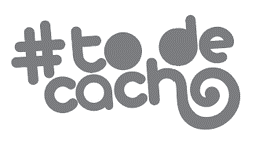Declaration from director of opposing company deemed sufficient evidence of prior use by PTAB and Federal Circuit

The US Court of Appeals for the Federal Circuit has affirmed the Patent Trial and Appeal Board (PTAB)’s refusal to register a mark, finding that an unchallenged, detailed declaration by the opposing company’s director sufficed as substantial evidence of prior use (Jalmar Araujo v Framboise Holdings Inc, case 23/1142, 30 April 2024, Lourie, Linn, Stoll, JJ).
Case background
On 3 December 2019, Jalmar Araujo filed an application to register #TODECACHO as a standard character mark for hair combs. Framboise Holdings filed an opposition on the grounds that Araujo’s mark would likely cause confusion with its #TODECACHO design mark, shown below.

Framboise alleged that it owned Araujo’s standard character mark based on its prior use of it in connection with various hair products since 24 March 2017. Framboise also filed its own registration application its design mark on 14 April 2020, claiming the same date of first use.
On 18 October 2021 – the final day on which Framboise could submit its case in chief to the PTAB – it moved for a seven-day extension. Four days after filing the motion, Framboise served Araujo with a declaration from its director, Adrian Extrakt.
Although it was the testimony of a single interested party, the board found Extrakt’s declaration to be convincing evidence of prior use. It provided a list of products, dates of first use and examples of the mark being displayed on products in stores. After the PTAB sustained the opposition, Araujo appealed.
Araujo argued that the board had abused its discretion in granting Framboise a trial extension, and that its finding that Framboise established prior use of the #TODECACHO design mark was not supported by substantial evidence. The Federal Circuit disagreed.
Federal Circuit decision
The Federal Circuit concluded that the PTAB had not abused its discretion in granting Framboise an extension because it had identified and applied the correct good-cause standard and “reasonably found good cause to grant the extension”. The court also held that the board was correct in finding that Extrakt’s declaration was sufficient evidence by itself to support a priority date of 24 March 2017, based on evidence of the design mark’s use in connection with various hair products.
The court noted that the declaration did not simply consist of “naked general assertions of prior use” but that it actually contained evidence. Araujo neither deposed Extrakt nor offered any evidence to dispute the claims. Therefore, Extrakt’s declaration was enough to meet the evidence standard.
Key takeaways
Oral or written testimony – even when offered by an interested party – can establish prior use in trademark proceedings, provided that it is convincing, sufficiently detailed and supported by evidence.
WTR recommends
“40 years of predictability has been discarded”: Federal Circuit applies new flexibility to design patent obviousness
Timberland gets the boot: trade dress and its “formidable” burden of proof
How to protect your clients from new scams targeting US trademark applicants
This is an Insight article, written by a selected partner as part of WTR's co-published content. Read more on Insight
Copyright © Law Business ResearchCompany Number: 03281866 VAT: GB 160 7529 10